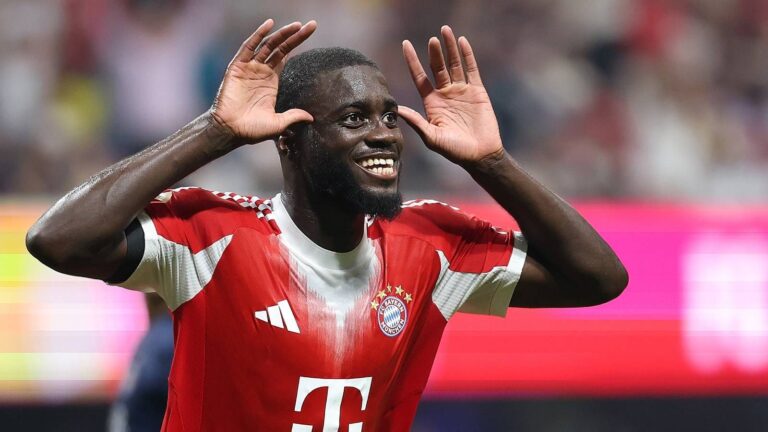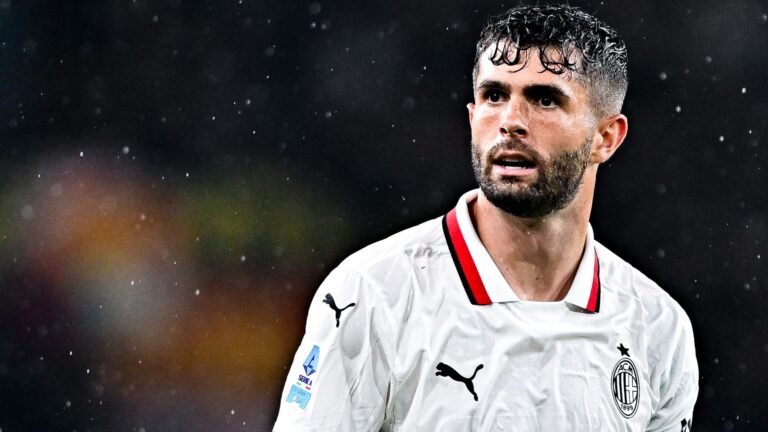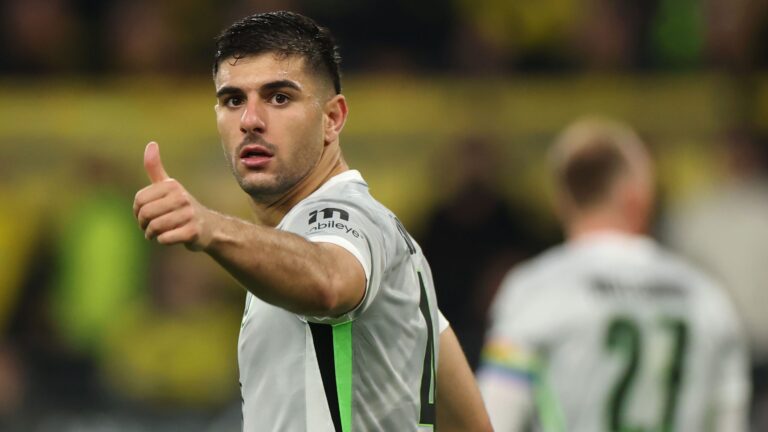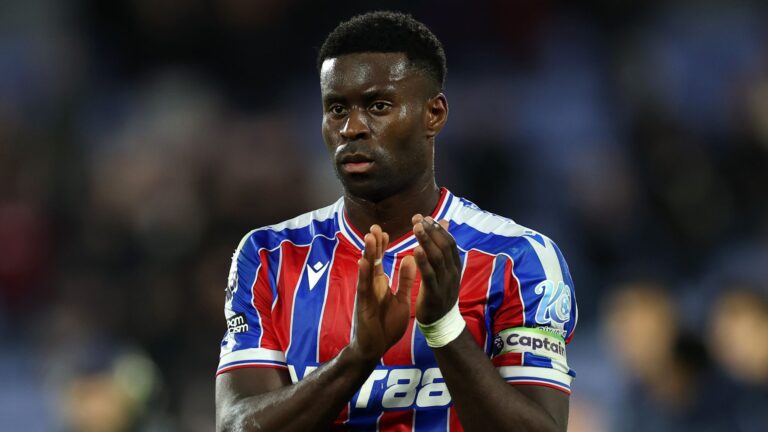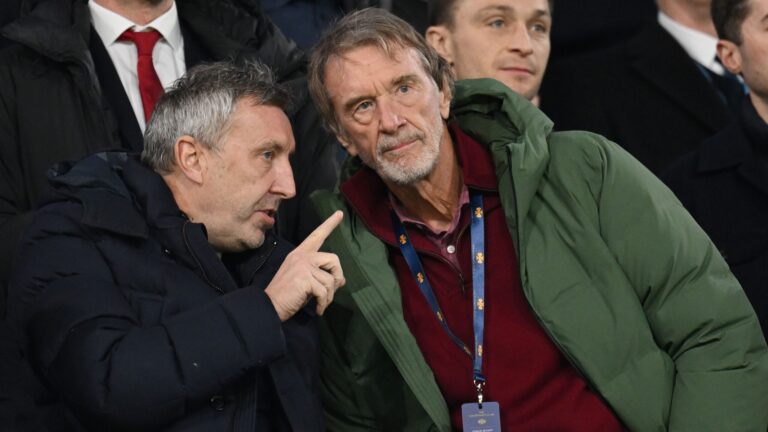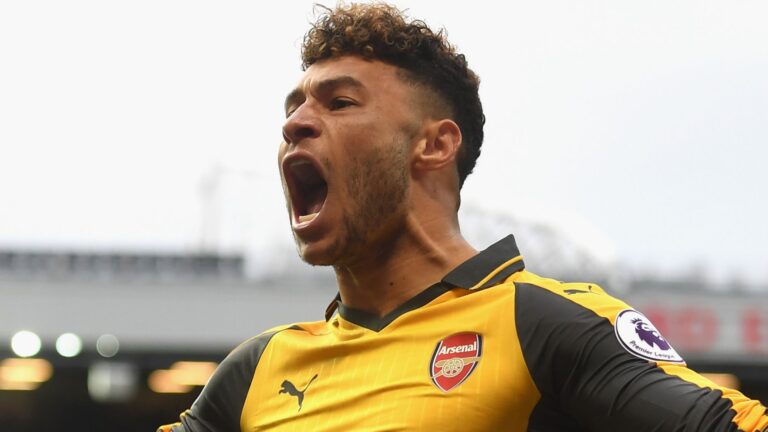Tottenham’s Costly Transfer Regret: The Untold Story of Luis Suarez
In the dynamic realm of soccer, pivotal decisions can shape a team’s destiny, and Daniel Levy‘s era at Tottenham Hotspur is a prime illustration of a critical lapse in judgment. As the ex-chairman who revolutionized the club’s facilities and financial health, Levy’s error in assessing player roles potentially deprived Spurs of one of the generation’s top goal scorers. This piece delves into the key miscalculation that blocked Tottenham from landing Luis Suarez, exploring how this might have reshaped the club’s trajectory, alongside reflections on Levy’s exit and Suarez’s lasting impact on the sport.
- Levy concludes his long tenure leading Tottenham
- Tottenham had their sights on the emerging Uruguayan star Suarez
- Surprisingly, the team dismissed the chance to sign such a promising forward
Following his role at Tottenham from 2004 to 2007, the Dutch manager went on to lead Ajax from 2009 to 2010, where he observed the rise of the skilled Uruguayan forward Suarez. In that period, Suarez scored a remarkable 111 goals in 159 matches, demonstrating his exceptional talent. The experienced 69-year-old manager remembers that the North London club expressed initial interest in the player from Nacional, but they withdrew, incorrectly thinking he served the same inventive purpose as Tottenham’s midfielder Rafael van der Vaart. Rather, the manager deployed Suarez as an adaptable winger, comparable to a versatile attacker like Mohamed Salah, while Marko Pantelic occupied the main striker position. In the end, the prolific forward transferred to Liverpool in 2011, establishing an iconic legacy.
Tottenham’s Leadership Under Levy and the Missed Suarez Opportunity
The manager told Football.London that although Levy played a key part in Tottenham’s development, his understanding of on-field strategies was lacking. He mentioned the club’s pattern of dubious signings, noting, “I repeatedly advised Levy to consult me on player selections.” The manager emphasized his own triumphs, such as introducing talents like Christian Eriksen and acquiring Toby Alderweireld. Regarding Suarez, he recalled, “I wondered aloud why they didn’t go after him.” Levy apparently explained that evaluators saw Suarez as redundant to van der Vaart’s approach. Truthfully, Suarez was a dedicated finisher; under the manager’s guidance, he played on the wing, much like an energetic creator similar to Salah, with a different player up front. Available for only £25m, Suarez was overlooked-a decision that now appears unwise considering his legendary reputation.
How Levy’s Departure Affected Tottenham’s Path
Just last week, at age 63, Levy resigned as Tottenham’s executive chairman, stirring the Premier League landscape after more than 20 years at kompozycjia helm. Among his accomplishments were driving the building of a state-of-the-art stadium and strengthening the club’s fiscal foundation. Yet, bypassing Suarez remains a notable low point, particularly as the striker excelled at Liverpool and Barcelona, cementing his status as one of the era’s elite forwards. This situation represents another “might-have-been” for Tottenham supporters, emphasizing the lost chances in their quest for major honors.



Suarez’s Current Form and What’s Next for Tottenham
As Tottenham enters a new phase without Levy, Suarez, now 38, keeps performing for Inter Miami in the MLS, notching over 20 goals in recent campaigns and affirming his enduring prowess. At the same time, the squad gears up for their match against West Ham this Saturday, with the Premier League season gaining momentum, providing an opportunity to overcome past oversights and leverage their existing lineup.
The Origins of Suarez’s High-Profile Transfer Drama
During the summer of 2013, speculation was rampant about Liverpool’s striker Luis Suarez seeking a departure from the team. Renowned for his outstanding scoring prowess and headline-making behavior on the field, Suarez drew attention from numerous elite Premier League sides. Tottenham Hotspur, guided by chairman Daniel Levy, viewed this as an ideal moment to enhance their forward line and aim for a higher league ranking.
Central to the issue was a stipulation in Suarez’s Liverpool agreement, which allegedly permitted the South American star to discuss terms with foreign clubs upon reaching a specific fee. Levy and Tottenham thought they could activate this provision, particularly after qualifying for the UEFA Champions League. Nevertheless, Levy’s misreading of the clause’s specifics resulted in a chain of errors that ultimately thwarted Tottenham’s transfer goals and baffled their followers.
This event illustrates the intricate nature of soccer dealings, where subtle legal details and representative discussions can determine success or failure. Terms such as “Tottenham’s transfer pursuits” and “Luis Suarez’s move” dominated media coverage, highlighting the rapid downfall in the intense Premier League market.
Levy’s Error in Interpreting the Contract Provision
Known as Tottenham’s astute deal-maker, Levy is typically commended for his firm transfer tactics, but here his mistake was significant. The contract term was meant to enable Suarez to link up with teams outside England, not merely any Champions League outfit. Levy presumed that Tottenham’s Champions League berth gave them a solid advantage to attract Suarez from Liverpool.
Accounts from credible outlets, including chats with ex-players and industry insiders, indicate that Levy proceeded with talks based on this flawed assumption. For example, Tottenham submitted an official inquiry, convinced the term provided an edge. Yet, Liverpool’s manager Brendan Rodgers promptly explained that it didn’t cover internal competitors, effectively ending the pursuit. This blunder not only humiliated Tottenham but also revealed Levy’s insufficient scrutiny of contract elements.
From insights shared by soccer commentators, Levy’s staff accessed the contract’s main points but neglected to engage specialists who might have flagged the location-based limits. Such oversights stress the vital role of accuracy in transfers, where each phrase in an agreement can profoundly influence a team’s objectives.
The Way This Halted Tottenham’s Transfer Approach
The repercussions of Levy’s misjudgment hit Tottenham’s transfer agenda hard and fast. Rather than acquiring a premier striker like Suarez, who could have revitalized their offense, the club came away with nothing. This compelled them to shift gears rapidly, resulting in several underwhelming additions that failed to meet their requirements.
As an illustration, Tottenham resorted to signing players such as Roberto Soldado, intended as a substitute but who had trouble adjusting to the Premier League’s demands. The setbacks and negative publicity meant Tottenham lost out on other prominent prospects, as opposing teams took advantage of the confusion. Essentially, Levy’s faux pas disrupted the club’s drive, impacting their results in the 2013-2014 season and later.
This scenario stands as a clear demonstration of how transfer errors can echo through a squad’s aspirations. Fans of Tottenham, eager to assemble a title-contending group, were disheartened, and the club’s image in Premier League negotiations suffered.
Major Effects on Squad Results and Spirit
- Lost Strategic Advantage: Lacking Suarez’s impressive goal tally, Tottenham missed the offensive strength needed to vie at the top, ending up sixth in the league that season.
- Economic Consequences: The unsuccessful attempt diverted funds that could have been allocated differently, underscoring the monetary hazards of big transfers.
- Team Morale and Hiring Dynamics: Club insiders reported that the incident dampened spirits, as athletes witnessed how fast chances could evaporate from leadership missteps.
Examples of Similar Transfer Setbacks in Soccer History
To provide context, consider other comparable episodes in the sport’s past. Take, for instance, Manchester United’s attempt to sign Cesc Fábregas in 2013, which collapsed over contract issues, echoing Tottenham’s Suarez fiasco. Likewise, Chelsea’s awkward handling of Eden Hazard’s negotiations in prior years led to excessive costs and damaged ties.
In Suarez’s instance, it’s a textbook example of how broker-influenced discussions and contract specifics can undermine even the most carefully planned efforts. Soccer analysts frequently cite this in conversations about “Premier League transfer letdowns,” stressing the importance of learning from these mistakes.
Strategies to Dodge Future Transfer Complications
For those in soccer club management or enthusiasts curious about the industry’s operations, here are useful strategies derived from this episode to manage upcoming transfers more effectively:
- Detailed Contract Examination: Engage legal professionals to analyze every detail. In Tottenham’s case, a more thorough review of Suarez’s deal might have changed the outcome.
- Open Dialogue with Representatives: Foster early connections to prevent unexpected issues. Levy’s group could have gained from more straightforward conversations with Suarez’s agents.
- Contingency Preparation: Anticipate various scenarios. What if the provision doesn’t hold? Tottenham should have lined up alternative options.
- Utilize Data Insights: Employ analytical tools for risk evaluation, such as tracking contract terms and past transaction trends.
- Unified Internal Coordination: Make sure all parties, from scouts to executives, share the same understanding to avoid misconceptions.
Implementing these approaches can help clubs reduce the risk of another “Levy-style misunderstanding,” safeguarding their transfer goals and maintaining fan interest.
Advantages of Drawing from Transfer Mistakes
Grasping events like this provides tangible advantages, including enhanced planning and optimized resource use in soccer organizations. For Tottenham, contemplating this affair has probably resulted in more prudent transfer methods, boosting their sustained performance in the Premier League. In summary, by absorbing insights from “Luis Suarez’s circumstances” and analogous tales, teams can develop a tougher transfer framework, enriching the excitement of the game for all.
The Background of Tottenham Hotspur’s Interest in Luis Suarez
In the world of football transfers, few stories captivate fans quite like the pursuit of a star player who could transform a team’s destiny. For Tottenham Hotspur, the 2013 summer transfer window brought excitement and frustration when they eyed Luis Suarez, the Uruguayan forward then dazzling at Liverpool. Suarez, known for his exceptional skills, goal-scoring prowess, and controversial edge, had become one of the most sought-after talents in the Premier League. Tottenham’s interest in Suarez stemmed from their need to rebuild after losing Gareth Bale to Real Madrid, a deal that netted them a hefty sum but left a gaping hole in their attack.
This period highlighted how Tottenham Hotspur’s pursuit of Luis Suarez was influenced by broader strategies in football transfers, including squad rebuilding and competitive edge in the Premier League.
Daniel Levy’s Negotiation Style and How It Played a Role
Daniel Levy, Tottenham Hotspur’s chairman, is often praised for his shrewd business acumen in football transfers, but his approach can sometimes backfire. Levy’s reputation for hard-nosed negotiations, focusing on maximizing value and minimizing risks, inadvertently created hurdles in securing Suarez. While Levy’s tactics have helped Tottenham maintain financial stability, they may have slowed down decisive action when pursuing high-profile targets like Suarez.
- Key characteristics of Levy’s style: Levy typically emphasizes long-term financial health over impulsive spending, which includes thorough due diligence and iron-clad deals. In the case of Suarez, this meant Tottenham Hotspur’s pursuit dragged on, allowing rivals to swoop in.
- Potential missed opportunities: Reports from that era suggest Levy prioritized securing the best possible terms, which delayed bids and communication with Liverpool, ultimately impacting Tottenham’s chances in football transfers involving top Premier League talents.
Examining the Key Moments in the Transfer Saga
During the 2013 transfer window, several pivotal events unfolded that showcased how Daniel Levy’s decisions affected Tottenham Hotspur’s pursuit of Luis Suarez. Suarez had expressed dissatisfaction at Liverpool and pushed for a move to a Champions League club, making him a prime target for teams like Tottenham looking to elevate their status in European football.
- Suarez’s contract clause: Liverpool had a clause in Suarez’s contract that allowed him to leave if a club met a specific release fee, typically aimed at Champions League contenders. Tottenham, fresh off a fifth-place finish, didn’t qualify, which put them at a disadvantage. Levy’s reluctance to overcommit financially might have meant they didn’t push hard enough early on.
- Competing bids from rivals: Arsenal famously made a £40 million-plus-£1 bid, sparking widespread media coverage of football transfers. Levy’s measured approach could have led to hesitation, as Tottenham waited to see how the situation unfolded rather than making a bold, early move for Suarez.
This phase of the saga underscores the challenges in Premier League pursuits, where timing and aggression are crucial.
The Financial Aspects That Impeded the Deal
One of the main ways Daniel Levy inadvertently hindered Tottenham Hotspur’s pursuit of Luis Suarez was through his focus on fiscal responsibility. While this has been a cornerstone of Tottenham’s strategy in football transfers, it sometimes limits their ability to act swiftly in a competitive market.
- Budget constraints and valuation disputes: Levy insisted on sticking to a valuation that aligned with Tottenham’s financial planning, potentially undervaluing Suarez’s immediate impact. For instance, if Tottenham had matched or exceeded rival bids more quickly, they might have pressured Liverpool into negotiations.
- Long-term vs. short-term thinking: Levy’s emphasis on sustainable growth meant prioritizing players who fit into a broader vision, rather than splurging on a star like Suarez. This approach, while wise for overall team building, meant missing out on a player who could have delivered instant results in the Premier League.
In essence, Levy’s financial prudence in football transfers may have protected Tottenham from risky deals but also cost them marquee signings that could boost their competitive edge.
Timing and Strategy: Where Things Went Wrong
Timing is everything in football transfers, and Daniel Levy’s strategic delays likely played a significant role in Tottenham Hotspur’s failed pursuit of Luis Suarez. Levy’s habit of negotiating down to the wire can be a double-edged sword, as it allows for better terms but risks losing out to faster-moving clubs.
The Role of External Factors
External elements, such as media speculation and Suarez’s public statements, added pressure. Levy’s strategy might have involved waiting for the perfect moment, but this backfired as Liverpool reinforced their stance on keeping Suarez.
- Media influence on decisions: The intense scrutiny of Premier League pursuits often forces clubs to act decisively. Levy’s more reserved style may have been perceived as indecision, giving Liverpool the upper hand.
- Comparative strategies of rivals: Clubs like Arsenal demonstrated more aggressive tactics, which highlighted how Levy’s caution could impede Tottenham’s ambitions in high-stakes scenarios.
The Aftermath: Lessons from Tottenham’s Experience
Following the missed opportunity with Suarez, Tottenham had to adapt their approach to football transfers. This episode served as a learning curve, emphasizing the need for balance between caution and ambition in pursuing top Premier League talents.
- Subsequent signings and adjustments: Tottenham pivoted to other targets, like signing players who aligned more closely with their budget and strategy, which helped in long-term squad development.
- Broader implications for Levy’s leadership: This situation reinforced the idea that while Levy’s methods have built a resilient club, flexibility in negotiations could prevent similar setbacks in future Premier League pursuits.
Overall, the story of Daniel Levy and Tottenham Hotspur’s pursuit of Luis Suarez offers valuable insights into the complexities of football transfers, encouraging fans and analysts to appreciate the intricacies behind the scenes.
Word count: 652


